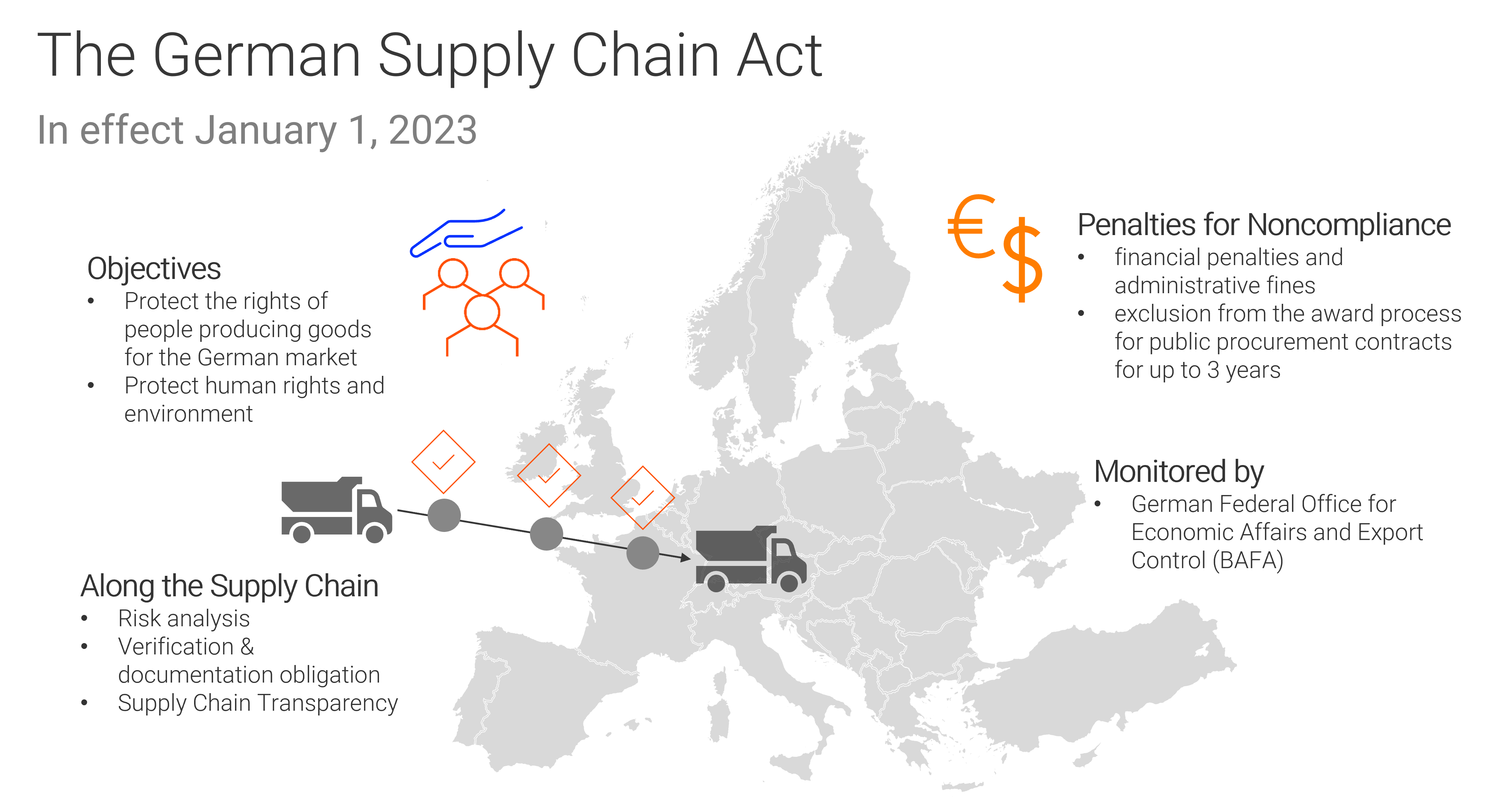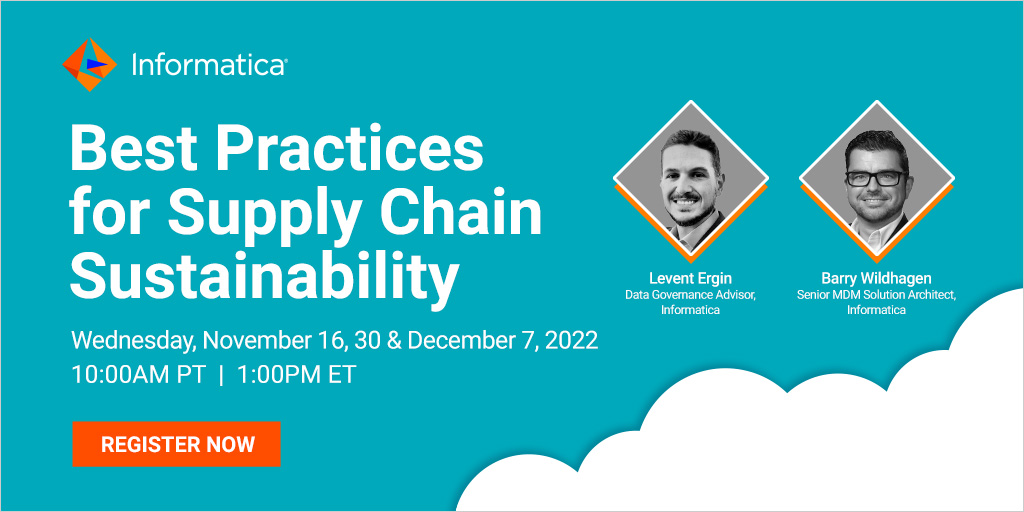How to Improve ESG Reporting to Comply with the New German Supply Chain Act

Child labor, forced labor, disregard of workplace safety standards, and human rights abuses connected with environmental damages – these are just a few examples of ESG-related supply chain risks.
In my recent blog, “Managing ESG Performance and Supplier Data Along the Supply Chain,” I discussed why sustainability is already part of corporate agendas for leading companies everywhere.
But still, according to a report from the German government on business and human rights, 80% of midsize to large companies are not doing enough due diligence on their supply chains.1 They are finding it difficult to identify risks related to human rights and environmental matters and are unable to take measures to mitigate or avoid them in the future.
The New German Supply Chain Act
The new German Supply Chain Act (Lieferkettengesetz) aims to protect the environment and the rights of people who produce goods for the German market. Initially, it will be effective as of January 2023 for companies doing business in Germany with a workforce of at least 3,000 (later, with workforces of at least 1,000).2

The ESG legislation requires these organizations to ensure compliance with human rights and environmental due diligence obligations across their entire supply chain. They need to set up internal compliance mechanisms and report on their activities.
The entire supply and value chain of companies is subject to the Act — from the mining of raw materials through delivery to the end consumer. It applies to companies as well as all their direct and indirect suppliers across their end-to-end supply chain networks.
Increasing supply chain transparency and visibility into the supplier network will be a key element for compliance with ESG regulations, like the German Supply Chain Act.
What Are the Penalties for Noncompliance?
The German Supply Chain Act is monitored by the German Federal Office for Economic Affairs and Export Control (BAFA).
Businesses that become aware of violations and take no remedial action face a financial penalty of up to €50,000 and administrative fines of up to two percent of their average annual revenue if it is greater than €400 million.
Under the act, companies can also be excluded from the award process for public procurement contracts for up to three years. Companies also must disclose supply chain information and ESG related data.
How Can Intelligent Cloud Data Management Help You Comply with the German Supply Chain Act?
The German Supply Chain Act is just one example of a growing list of enacted and proposed global ESG and sustainability regulations. It is therefore important to take a strategic approach to sustainability and ESG data management for reporting and compliance.
Intelligent cloud data management is helping organizations by enabling and simplifying their ESG-reporting due diligence obligations as follows:
Improving ESG-related Risk Analysis
- By mapping the relationships between suppliers to get greater visibility into ESG-related data across the supply chain
- By accessing a full, trusted and transparent view of the supplier network and all relevant data from different sources and systems for an integrated picture of ESG-related risks
Increasing ESG Reporting Productivity
- By streamlining and automating data collection workflows and improving capabilities to manage more and more complex ESG data requirements — especially related to supplier and product data
Increasing ESG Reporting Accuracy
- By centralizing and standardizing supplier and product data
- By improving ESG data quality through embedded data governance standards and quality checks
To ensure all suppliers and sub-suppliers align with ESG standards, it is important to make them accountable. Therefore, you should proactively take even indirect suppliers into consideration in performing their risk management.
Sustainability and ESG compliance should be an integral part of the onboarding process of new suppliers and the related approval workflows. To ensure compliance, embed ESG and sustainability requirements for new suppliers and their sub-suppliers into the onboarding workflow.
The Informatica® Intelligent Data Management Cloud™ features AI-powered, cloud-native data management and governance that provide the capabilities and scalability needed to discover, cleanse, integrate, catalog, master, govern and protect the immense volume and variety of data involved in every aspect of ESG compliance. Powered by more than 200 intelligent data services in a single platform, it enables you to achieve the insights, agility and business outcomes that lead to success.
Want to Learn More?
Register now for the webinar “How to Comply with the German Supply Chain Act and Other ESG Regulations” and check out this white paper, “Meeting ESG Reporting Mandates by Enhancing Data Management” to learn how Informatica can help improve regulatory compliance for ESG data reporting.









